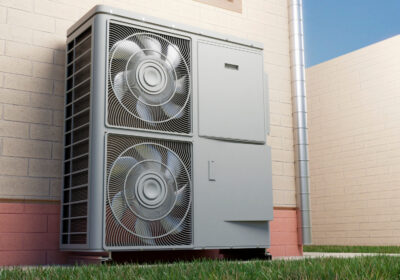The Operation And Benefits Of Hybrid Heating
Heating and cooling systems come in all kinds of combinations. Many people use air conditioning-furnace combinations. However, a hybrid heating system also works great. Below is an overview of the operation and benefits of hybrid heating.
Operation
A hybrid heating system uses two sources of fuel — hence the name. A typical hybrid system consists of a heat pump that uses electricity and a furnace that uses natural gas. The hybrid system provides both heating and cooling, depending on prevailing temperatures.
- Mild Cold: If the weather is relatively cold, the heat pump runs to warm the house. A heat pump operates like a conventional air conditioner in that it uses a refrigerant to move heat from one location to another. The main difference is that the heat pump moves heat from outside to inside the house.
- Extreme Cold: If the weather is too cold, the hybrid system switches to furnace heating. The switch is critical since a typical furnace produces more heat than a heat pump, which would struggle under such circumstances.
- Hot Temperatures: In hot temperatures, the heat pump picks up again to cool the house. In this case, the direction of heat transfer changes — the heat pump picks up heat inside the house and dumps it outside. Thus, the heat pump eliminates the need for an air conditioner (AC).
A hybrid system has an intelligent system that analyses the temperatures and determines the fuel source to use. Thus, you don’t have to keep switching from one system to another if the temperature changes.
Benefits
Hybrid systems have multiple benefits. Below are some of them.
- Energy Efficiency: Heat pumps don’t produce their heat. Rather, they use the energy they draw to circulate refrigerant and transfer heat. The energy needed to transfer heat is lower than the energy needed to produce heat. Thus, heat pumps are more energy-efficient than furnaces.
With a hybrid system, you get the average of the heat pump’s efficiency and the furnace’s relative inefficiency. Also, the hybrid system adapts the energy type to the prevailing temperature. Thus, running a hybrid system is more energy-efficient than running a furnace and an AC. - Versatility: As previously mentioned, a hybrid system can switch to different operation modes depending on the temperature. Most of these systems have both automatic and manual controls. Thus, if you are satisfied with the automatic controls, you can switch on your hybrid system and let it run without further input from you. You also don’t have to install any other HVAC system.
- Eco-friendliness: Combustion systems affect the environment in multiple ways. For one, flue gases pollute the environment. Secondly, the extraction of fossil fuels also damages the environment. Using a hybrid system that incorporates a heat pump reduces the level of pollution from your heating and cooling system.
- Reliability: During the cold season, hybrid systems are reliable because you will still get some heat even if one system fails. For example, if the furnace fails, you can still get some heat from the heat pump. If the heat pump fails, you can still rely on heating from the furnace.
- Comfort: Secondly, hybrid systems tend to provide more comfort than other HVAC systems, at least if the heat pump is running. For example, a heat pump runs all the time, unlike a furnace. The constant running keeps the house at more even and comfortable temperatures. Small temperature fluctuations are inevitable from a furnace since it has on-and-off cycles.
Baton Rouge Air Conditioning and Heating has decades of experience in the heating and cooling industry. We install, service, and repair HVAC systems. Contact us for a quote on any heating service you need.






Share This